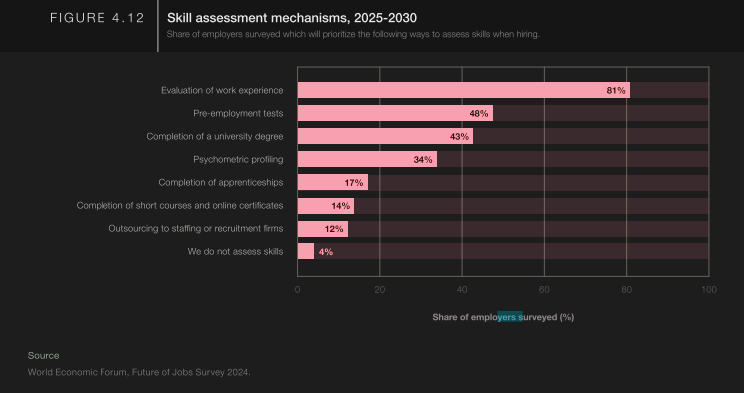The global community is facing a critical change that will take place due to the rapid development in the sphere of technology, climatic changes, the emergence of new customers, and automation. Consequently, the entire workforce of the world will bear a considerably distinct image by 2050. Most of the current jobs will vanish, and altogether new professions will surface. It is important to know where industries are moving towards in the planning process of roles, which might be at the forefront in the coming decades in the job market.
Technological Fluency and Data Literacy
Technological fluency is one of the most important skills that will take over the labor market of the year 2050. Employees will be required to learn about ways of engaging with intelligent systems, automating processes, and making decisions on data analytics. The ability to fluently code in programming languages, learn the models of algorithms, and apply them in work with the massive scope of data will not be a specialization but a primary need in working in almost any profession involved. On the one hand, the digitalization of the industry will ensure that everyone in every industry, ranging from agriculture to healthcare, will have advanced digital platforms that call not only to know how to handle systems but to analyze their results.
Emotional Intelligence and Human-Centered Skills
Emotional intelligence is likely to be one of the most helpful qualities in relation to the work of 2050, despite the prevalence of automation and intelligent machines. New jobs in the future will focus on teamwork, interaction, and how to deal with human beings. Individuals with the ability to manage staff members, show empathy in leadership, negotiate, and sustain the relationship with clients will become outstanding. The industries where human-centered skills will be particularly crucial include the ones which operate in the mental health field, as well as customer service, education, and team management.
Critical Thinking and Complex Problem Solving
The high frequency of change in industries will introduce unfamiliar challenges that will require highly sophisticated problem-solving capabilities. New professionals will be required to evaluate complicated situations, predict an outcome, and act in unclear environments. The future is what will pay off the people who will be able to combine the information provided by various resources, analyze the different points of view, and come up with new approaches to addressing problems on a global level. A skill to question assumptions, dismantle complex systems, and predict new solutions, new ways of doing things, will be the mark of any successful future professional in the world of changing jobs.
Green and Sustainable Knowledge
Familiarity with green technology and sustainable methods will be in great demand as the environment becomes an issue of growing concern, as well as global initiatives challenging to set a sustainable future. The green economy will develop new jobs linked to new renewable energy, circular economy models, and climate adaptation. The people who have knowledge of the ecological system and processes, concepts of sustainable development, and laws in the environment will be in the most advantageous position to innovate.
Space Economy and Frontier Technologies
The space economy is set to expand dramatically by 2050, spawning entirely new industries beyond Earth’s atmosphere. This growth will unlock opportunities in satellite technology, asteroid mining, space-station development, and interplanetary travel systems. Aspiring professionals can build space careers by leveraging reputable online platforms and educational resources that guide them toward their dream roles. As technological breakthroughs and increased investment make these paths more attainable, future-focused individuals should prepare for a landscape where both commercial and scientific missions demand multidisciplinary expertise—from aerospace engineering and data science to life sciences—and the specialized skills required to operate in extraterrestrial environments.
Conclusion
The future of work will not be held down by the formal job description and linear career path but by agility, innovation and cross thinking. The industrial world is developing at a very rapid rate and by the year 2050, industries that break the boundaries and bring new challenges that require new solutions and new creativity are going to emerge. The blend of technical savvy, human skills, and a ruthless desire to learn and develop will be the recipe for success in this new world. It is all about preparing to work in the jobs of tomorrow, with that meaning knowing changes already happening today and having a skill base that is beyond what any job will require.



































